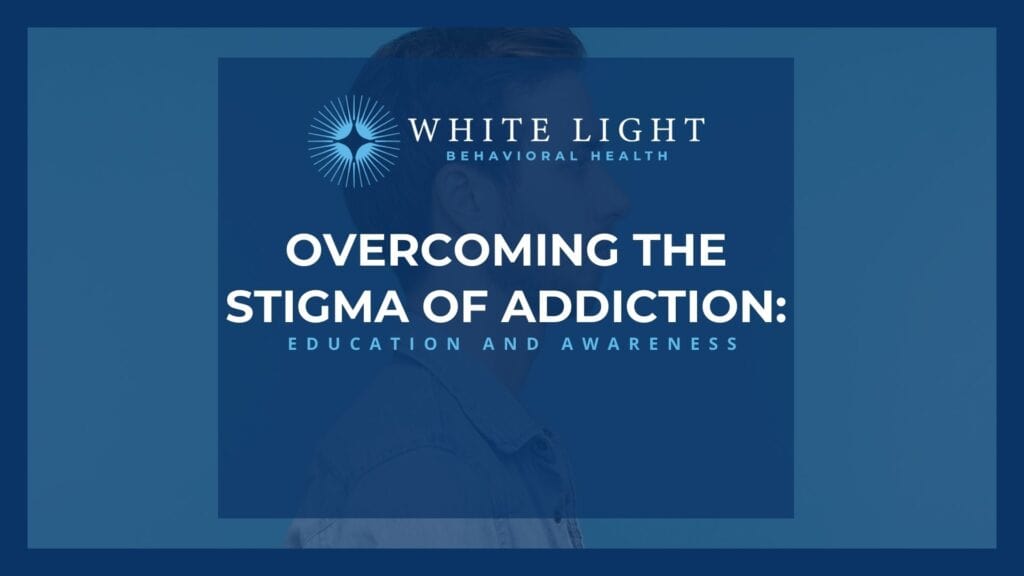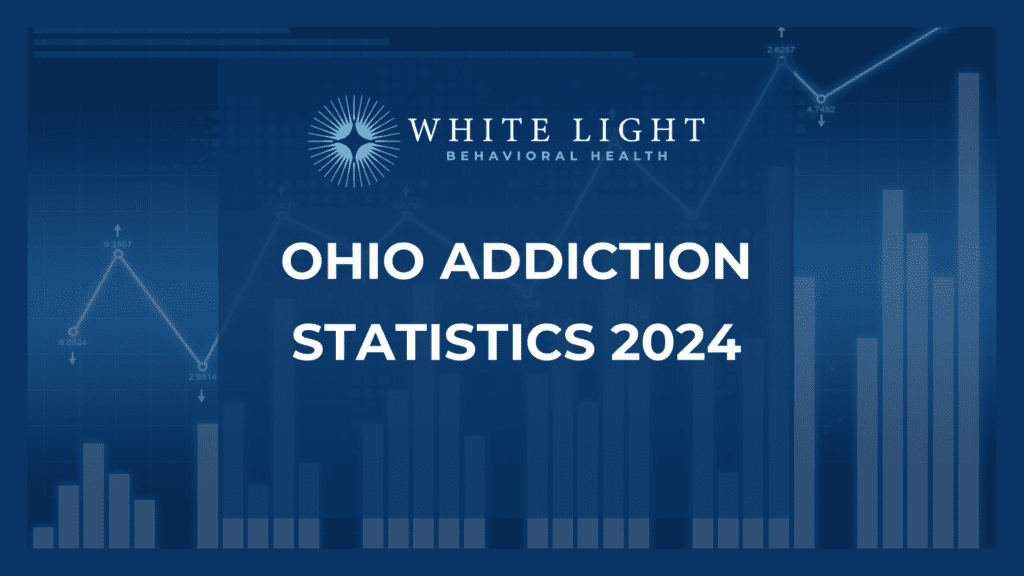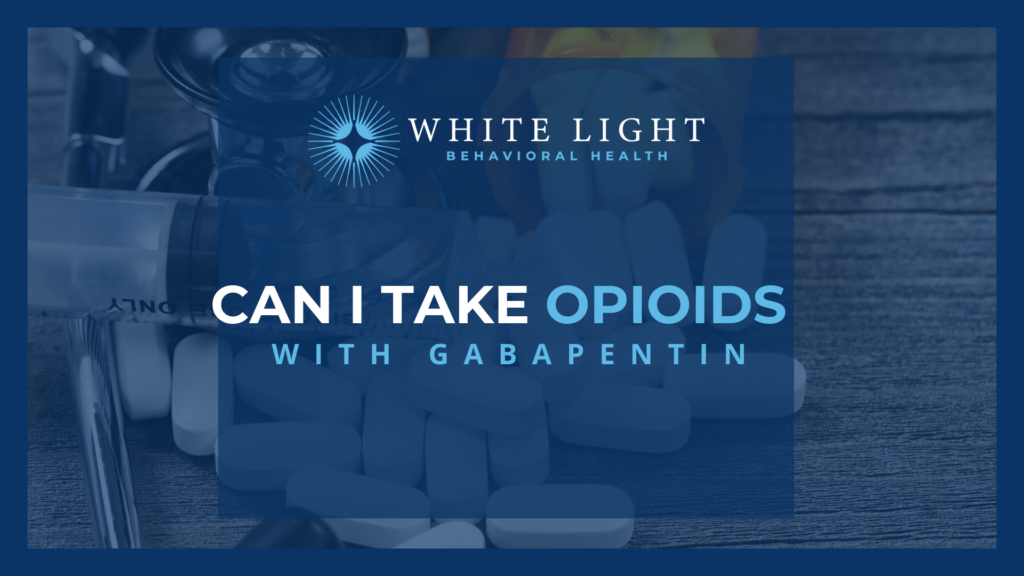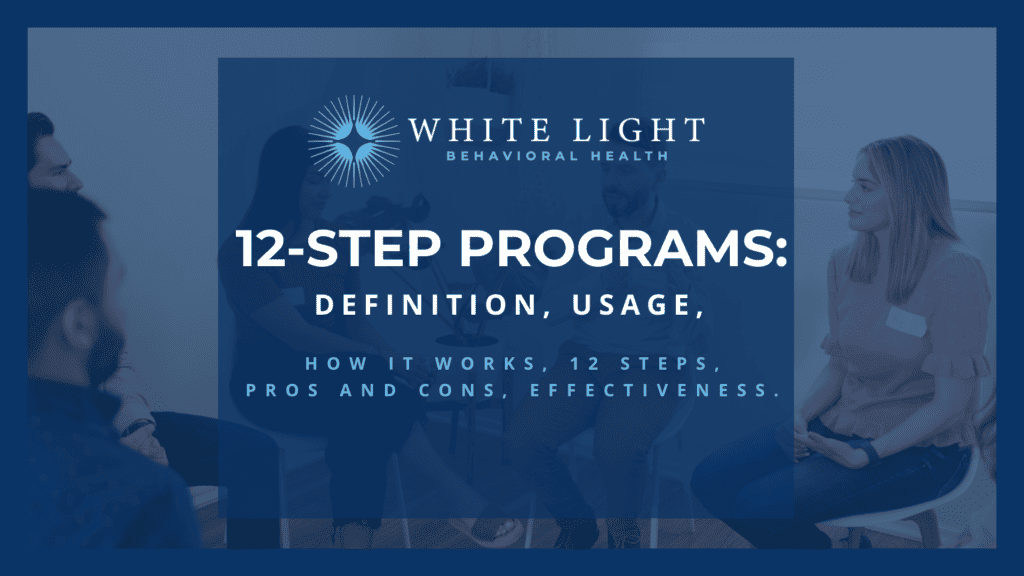Addiction is a grave matter, which can lead to those with this illness being unfairly vilified. Because of this, people afflicted by addiction avoid seeking help due to the fear of being shamed. To combat this, raising awareness and providing people with accurate information about addiction can help create an environment where individuals dealing with addiction are treated with understanding and support rather than ridicule.
This article explains addiction stigma, its existence, and how we can challenge it through education and advocacy. Moreover, it will provide resources for those impacted by the stigma and outline how individuals can assist in educating the public on this topic or show their support for those living with addiction.
What Is Addiction Stigma?
When it comes to addiction stigma, it’s vital to understand what it is and why it’s so damaging. Addiction stigma is a negative label assigned to people who have a substance misuse disorder. Unfortunately, this stigma can be incredibly detrimental to those battling addiction, reinforcing a culture of fear, judgment, and seclusion.
Individuals don’t just express addiction stigma; it shapes social norms and systems, making it difficult for those with an addiction disorder to find help. This can be witnessed in educational policies that discriminate against those with addiction, denying them the same access to resources and care as those without an addiction disorder. In addition, this kind of stigma impacts how society views addiction, which may lead to shame and embarrassment that prevents someone from asking for help.
To sum up, addiction stigma often stands in the way of people getting treatment for their substance misuse disorder. Raising awareness and educating on the issue is essential in reducing the stigma associated with addiction. By offering support and understanding for individuals dealing with substance misuse, we can craft a more embracing healthcare system that encourages everyone’s journey toward recovery.
Types of Stigma Around Addiction
When it comes to addiction, stigma unfortunately still exists. It can prevent people from getting the help they need or even admitting that they need help in the first place. Sadly, those affected by substance use disorder face several obstacles and prejudices that may prevent them from seeking support.
Stigmas around addiction come in all shapes and sizes. Being an “addict” can have many negative connotations—of being immoral, lazy, or weak-willed. Other stigmas may include:
- Blaming individuals for their condition: This is a common misconception, as addiction is classified medically as a chronic disease. It does not imply anything about someone’s character or morality.
- Employer discrimination: Employers may be biased against hiring individuals recovering from substance abuse disorder due to the various challenges it can present.
- Family shame: Family members may feel embarrassed by their loved one’s disorder and keep it hidden from others out of fear of judgment.
These stigmas can damage those overcoming addiction and, therefore, must be addressed through education and raising awareness so that understanding and acceptance can replace misplaced judgment and prejudice.
What Influences Addiction Stigma
Stigma related to addiction can be incredibly damaging and make it very hard for a person to seek and get aid. Unfortunately, this stigma persists, so it’s essential to understand what contributes to its power.
Here are some factors which can influence and perpetuate the stigma of addiction:
- Social attitudes: How people regard individuals with addiction and the disorder significantly affect stigma. People may make assumptions or judge the person, creating shame that hinders help-seeking behavior.
- Media: Media often portrays addiction intensely negatively, furthering the stigma.
- History: People with family members who have had an addiction may be wary of seeking help due to the fear of being judged.
- Economic status: People from lower economic means are at greater risk of being stigmatized than those with higher economic standing.
- Education: Those not properly informed about addiction can easily jump to conclusions based on limited information.
- Lack of understanding: Not fully understanding addiction as a mental illness can increase the stigma surrounding it.
Minimizing stigma and decreasing its effect is crucial in helping those who struggle with addiction; we must reduce prejudice by raising awareness, teaching others about addiction, and demonstrating sympathy and compassion. This should create an easier pathway for individuals with addictions to receive assistance without fear or shame.
The Impacts of Addiction Stigma
Have you ever stopped to think about how addiction stigma impacts people? It affects all walks of life, from young to old, rich or poor—the negative effects of addiction stigma are far-reaching and can be seriously hard to overcome.
Isolation
People who have struggled with an addiction may experience feelings of shame, guilt, and hopelessness that lead to isolation. They might feel like they’ll never be accepted or understood, preventing them from getting the help they need. This can be a dangerous cycle—isolation from the people who could offer them support to prevent them from getting the help they might need.
Lack of Opportunities
It’s no secret that employers look at applicants’ pasts—and if they’ve ever been arrested for drugs or alcohol abuse, they might not get the job. Not only does this make it harder for people struggling with addiction to find jobs in the first place, but it can also contribute to a feeling of worthlessness that keeps them in an addictive cycle.
Addiction stigma has very real consequences and impacts people’s lives in more ways than one. It creates a barrier between those who need help and those who can provide it and creates an environment where seeking help isn’t seen as an option. Though changing this will take time and awareness, it is possible through education and awareness-raising campaigns focusing on understanding, not judgment.
Coping With Addiction Stigma
Acknowledge and accept that addiction is an issue you are facing. Educate yourself and others on the reality of addiction to be well-equipped to help yourself and others understand it better. Connect with those who can offer support, whether family, friends, or strangers.
Joining support groups with people who are in similar situations can be beneficial. Take care of yourself, too; this could involve anything from exercising to eating healthy or spending time outdoors. Find something that gives you purpose, such as a career or hobby. This may give you the motivation to keep going. Lastly, seek professional help if needed—a mental health practitioner may be able to guide how to cope with the stigma of addiction.
By taking these steps, coping with the stigma of addiction can become more manageable and allow you to move forward.
Strategies to Overcome Addiction Stigma
Education, awareness, and advocacy are key to reducing addiction’s stigma and fostering understanding.
Education
Education can help people gain insight into the biological, psychological, and social risk factors associated with addiction. It can also help dispel false information that can lead to negative beliefs about those recovering from addiction.
Awareness
Awareness helps to reduce stigma by raising awareness about addiction, its causes, and effective treatments available for those in recovery. Raising awareness also encourages understanding addiction is an illness rather than a moral failing or character flaw.
Advocacy
Advocacy involves ending discrimination against people with addictions or those in recovery from addictions. Different forms of advocacy include working with legislators to pass laws promoting access to treatment, speaking out against language that perpetuates stereotypes, and supporting those in recovery from addictions by providing resources or other forms of support.
Raising Awareness About the Addiction Stigma
Bringing recognition to the stigmas of addiction is essential in combating them. Education and awareness are among the most powerful methods in transforming attitudes and decreasing hindrances experienced by those with mental illness, including addiction.
Realizing the truth about addiction stigma is integral to its dissolution. This involves understanding that individuals with substance abuse or other mental health disorders are no different from anyone else, that recovery is achievable, and that those dealing with an addiction should not be discredited or mistreated.
By proactively elevating awareness, we can foster more open and honest conversations – which could eventually contribute to breaking down stigma. From informing people through educational campaigns to conveying messages via media, there are many ways to diminish the stigma of addiction.
Seeking Help
Addiction is an intricate and serious issue. It requires understanding, empathy, and a joint effort of individuals, families, and society to alter the stigma and grasp addiction facts.
Education and awareness can be beneficial in dispelling the stigma of addiction and demonstrating that addiction is not a moral shortcoming or personality defect but rather a medical condition that merits compassion, support, and entrance to treatment.
We all have a part to play in eradicating the stigma around addiction, and by collaborating, we can have a true impact on how it’s viewed and how those struggling can get the help they require.

Share This Post



